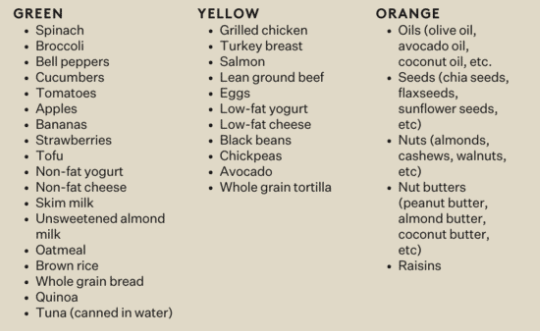Is Noom any good? Noom review from a psychologist...
Are you thinking about trying Noom? Perhaps you’re wondering whether it’s any good?
This is my honest Noom review as a registered psychologist and food freedom coach.
Trigger warning – since Noom is a diet, I will be discussing weight loss and calories, so if that might be triggering, please read another post.
What is Noom?
At its very heart, Noom is a weight loss program. It was supposedly designed by behavioural psychologists, nutritionists and personal trainers with the aim to help someone lose weight over a period of time by implementing sustainable habits.
The adverting for Noom says things like
· Retrain your Brain
· Stop dieting, get lifelong results
· Lose weight for good
Is this true?
In doing my research, I signed up to Noom and did a short trial so that I could really experience what it would be like doing Noom. I go into detail about the sign up process in this video here so do take a look if you’re interested.
First thing you do is complete an online quiz where Noom asks about your weight loss goals and behavioural profile. This took me about 15 or so minutes to complete.
There are several red flags with Noom…
#1 Calorie allowance is too low
This was my first issue. The calorie allowance is way too low. At my height and weight I’m recommended 1320 calories a day (up to 1400), which was an immediate red flag especially because these are the calorie needs of a toddler and I am a grown woman.
Plus, it’s simply not sustainable. Noom’s comms suggest that it’s about long-term and sustainable weight loss, but there is nothing long-term or sustainable about these low calories.
Having followed several low calorie diets during my disordered eating phase, I know how that hunger levels would be very high and also that it wouldn’t be healthy to follow for the long-term.
#2 Logging and tracking
Yes I know some people enjoy logging and tracking. But let’s take a look at each…
Logging
With Noom, you have to log everything you eat and work out your calories so that you’re not going over your daily allowance.
I have so many issues with this. First, it’s time consuming and tedious. Second, it can create a disordered relationship with food. Third, calorie counting isn’t always accurate (for example nutrition labels have a 20% leeway in either direction so you could actually be over- or under-doing your daily calories).
Finally, our calorie needs fluctuate across days and months so having the same daily allowance doesn’t accommodate this.
Tracking
Daily weighing isn’t necessarily helpful. Our weight naturally fluctuates across a day and also across a month (especially if you menstruate).
Also, I find it problematic focusing on weight. Lean muscle weighs more than fat, so for some people weight gain might be the best for their health rather than weight loss.
Further, weight loss isn’t always the best goal to have if you are worried about your health. Maybe it would be better to focus on fitness levels, or walking upstairs without getting out of breath, or feeling more confident in clothes.
The scales are very one dimensional.
#3 Noom categorises food
I’m not a fan of food categories. Currently Noom uses green, yellow and orange as their categories (recently changing from using “red” as a category to orange instead).
I find it problematic that some very health promoting and nutrient dense food are in their orange category.
Noom reiterates that no food is off limits, which is great, but from what I see it seems that foods are demonised in a more subtle way.
This is a much shorter version of their overall green / yellow / orange lists, here for illustration. I’m alarmed that nut butter, flax and pumpkin seeds, minced beef, rice cakes and avocado are on the red (oh sorry I mean orange) list.
Let’s think about it for a moment. It’s a traffic light system where green means go and red means stop. Yes, I know they changed from red to orange, but orange still means pause.
There’s no denying that whether you use a point system or you use a traffic light, you are – however subtly – saying some food is better than others. You’re definitely creating a hierarchy of foods here Noom!
#4 Focus is on weight loss and not health
Despite the adverts and despite Noom’s protestations that they aren’t a diet, I’m afraid Noom is a diet. The low calories allowance is the biggest give away, and the focus really is on weight loss.
It certainly doesn’t seem to be about health, or even about finding a way to eat that is sustainable.
Yes, on the Noom app there is some acknowledgement of positive behaviours such as mindful eating, but essentially Noom is about weight loss.
And the research is absolutely clear on diets: they don’t work in the long-term. The long-term research shows that regardless of type of diet, most people lose 10% of their body weight in the first 6 months, but fast forward 2-5 years and 80-95% of dieters have regained the weight and in 2/3 of cases end up heavier.
I looked for some research that used Noom (there’s not much) and couldn’t find anything that measured people beyond 9 months. Again, doesn’t sound very long-term or sustainable to me.
#5 Noom can trigger an ED
I’m not saying Noom WILL trigger an eating disorder, I’m saying Noom could trigger an eating disorder.
When I was signing up to Noom I was asked whether I have an active eating disorder – I don’t – so I said no.
But I was never asked whether I have ever had an eating disorder in the past. What if I had just recovered from on? Or suffered for years? As it happens, I’ve had two eating disorders in the past. I find it very problematic that people with previous Eds might be tempted to do Noom.
Having said that, the Noom app does discuss eating disorders and actually says that Noom might not be suitable for people with Eds, but really, anyone who’s had an eating disorder should be stopped from joining in the first place.
Plus the research shows that dieting is a precursor to eating disorders, so Noom can and likely already has, triggered eating disorders.
But does Noom work?
Well, I guess it depends on how you define “work”…
If you define this as being “will you lose weight during 16 weeks”, then you could say “yes it does work”…
But does it lead to long term and sustainable weight loss?
I’ve had a look for some research on whether Noom “works”… what I can see is some evidence that some people (78%) of people lose weight when they use the app for an average of 9 months. But that’s only ¾ of people; and only 23% lose more than 10% of their body weight.
But there are SO many limitations to this study - first up, it’s not a randomised control study so there’s no control group (so we can’t say for sure that weight loss is because of Noom. The weights are also self-reported (and we know how inaccurate self reports can be), and it’s a short study when you’re thinking about the question – does it lead to long-term and sustainable weight loss?
Knowing what we know about diets (which I already mentioned), the answer to that is probably no.
What’s good about Noom?
The app itself I think is pretty good, easy to navigate. There are also some really useful resource son the app, such as topics such as motivation, habits, food and psychology.
Yet…
I still find so much of the wording very ironic. For example, in the learning material Noom talks about not labelling food (which I’m a huge fan of – as you know) but at the same time Noom colour codes food which, however subtle, does label food.
There’s also some great advice about moving 10 mins every 2 hours, and not over scheduling your diary.
Noom also suggests as approach to add, not subtract food. Which again, I think is brilliant advice. But at the same time discusses “temptations” which is back to labelling and moralising food.
There’s some great tips about planning menus and eating food that is pleasurable, but then goes on to say “don’t expose yourself to tempting aisles”.
I find the language inconsistent: alongside some good advice (some of which I give to my clients), it’s laden with diet language, diet ideas and frankly ideas that contradict each other.
Bottom line?
The Noom diet encourages you to eat low calorie, nutrient-dense foods and monitors your progress via a mobile app. Although there is some positive ideas in their app, it focuses mostly on increasing weight loss rather than improving overall health and that (for me) is problematic.
To summarise, I really don’t recommend Noom as a psychologist or food freedom coach. Quite the opposite – I recommend giving up diets altogether!
If you would like to learn how to get healthy, but without restriction, sign up to my (free) food freedom masterclass to find out how…


